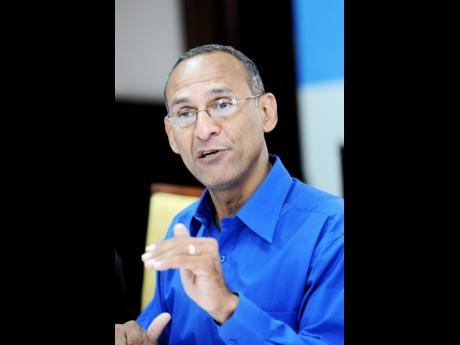CAPRI gives Budget thumbs up, but with caution
The Caribbean Policy Research Institute (CAPRI) is projecting that the recent slashes in stamp duty and transfer tax will likely spur greater investment in the economy, but argues that there were no “giveaways” in the Budget tabled by Finance Minister Dr Nigel Clarke in Parliament earlier this month.
Instead what the finance ministry did, according to the policy group, was to reduce major barriers to investments that were affecting growth numbers.
The Government is projecting to spend $803.3 billion and collect $663 billion in revenues during the 2019-2020 fiscal year, which begins on April 1.
Executive director of CAPRI, Dr Damien King, speaking at a recent forum held at The Knutsford Court Hotel in New Kingston and hosted by the think tank, said academic research on cases in Canada and France shows that the reduction in the taxes would have a positive effect on the economy.
“The purpose of the cut in the transfer tax is to make the economy more efficient. It is to reduce an obstacle to investment.
“Both papers resulted in significant effects on the volume of transactions and potential amount of investments. The smaller of the estimate out of the two papers suggests that the volume of transaction increases by 10 times the change in the transfer tax,” he said.
King also mentioned that the research has also shown that the tax reductions might cause property cost to increase.
“A seven per cent reduction in the transfer tax should increase property values by seven per cent. In the context of a country with large historical inequalities in wealth, much of which is based on the ownership of property, it’s something for us to bear in mind as we go forward,” the university lecturer said.
Responsible budget
He concluded that the Budget was responsible and would not derail the economy.
“Falling interest payment, rising revenue and the projected continued fall in the public debt assure us that the Budget that has been promulgated by Minister Clarke is consistent with continued debt reduction; that the tax reductions which were announced are not to be interpreted as some kind of giveaway and abandonment of fiscal responsibility.
“In the context of a balanced Budget, this is a responsible Budget,” King, also a senior economist lecturer at The University of the West Indies, Mona campus, said.
Responding to King’s presentation on the Budget, Clarke, while agreeing that there were likely to be more transactions as a result of the cut in taxes, said there would be accompanying activities coming for persons with skilled labour, and suppliers as well.
“We believe that if transaction activity increases and the supply of homes increases, then people who are in that supply chain, those who provide products and services, will also benefit from the increased volume,” the finance minister said.

